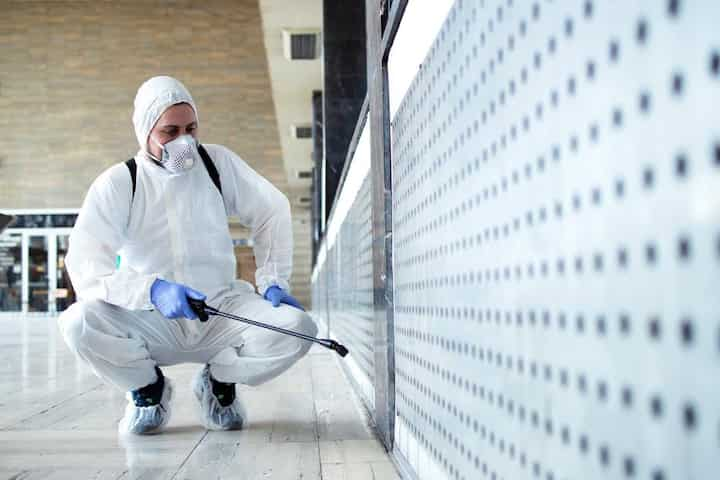The Ultimate Guide to Mold Remediation and Removal in Bloomington, Indiana
Understanding mold remediation and removal is crucial for residents of Bloomington, Indiana. The local climate often provides an ideal environment for mold growth, especially in humid and damp conditions, thus necessitating an awareness of effective remediation strategies.
Introduction: Bloomington's Environment and Mold Issues
Bloomington, Indiana, offers a distinctive blend of urban development and natural beauty, making it an attractive place to live. However, the regional climate can be a double-edged sword, as the humidity and moisture create a favorable environment for mold growth. Consequently, addressing mold issues is not merely an option; it is a necessity.
Understanding Mold and Its Implications
Mold is a type of fungus that thrives in damp environments. It is not only aesthetically displeasing but can also pose serious health risks, including respiratory problems and allergic reactions. Proper understanding of mold types and characteristics is vital for effective remediation.
Common Mold Types in Bloomington Homes
Homeowners in Bloomington often encounter common molds such as Aspergillus, Cladosporium, and Stachybotrys, commonly known as black mold. Identifying the specific type is often the first step in determining the appropriate remediation techniques.
Causes of Mold Growth in Bloomington
Factors such as persistent humidity, inadequate ventilation, and water leaks are primary culprits in mold proliferation. Understanding these factors helps mitigate risks and ensure that preventive measures are taken to safeguard health and property.
Steps of an Effective Mold Remediation Process
An effective mold remediation process involves several key steps:
- Inspection and Assessment: A detailed assessment of the property to identify mold presence.
- Containment: Preventing the spread of mold by closing off affected areas.
- Air Filtration: Using advanced filtration systems to capture mold spores.
- Removal: Safely removing mold-infected materials and cleaning affected areas.
- Restoration: Repairing any damage to return the property to its original state.
Importance of Professional Mold Removal Services
While DIY methods might seem tempting, professional mold remediation services, such as those offered by
local experts, ensure a comprehensive approach that minimizes health risks and prevents recurrence.
Regulatory Guidelines and Standards
Compliance with state and federal guidelines, such as those outlined by the Environmental Protection Agency (EPA), is essential in mold remediation. Adherence ensures the safety and efficacy of mold removal efforts.
Cost of Mold Remediation in Bloomington
The cost of mold remediation can vary based on factors such as the size of the area affected and the extent of mold damage. On average, costs range from $500 to $6,000. It is advisable to seek quotes from trusted local providers, such as
experienced professionals in Bloomington.
Preventing Future Mold Growth
Prevention strategies are integral to avoiding future mold issues. Regular maintenance, proper ventilation, and humidity control can significantly reduce mold growth risks. Utilizing dehumidifiers and ensuring prompt repair of water leaks are highly recommended.
Choosing the Right Mold Remediation Company in Bloomington
Selecting a reputable mold remediation company involves evaluating factors such as experience, customer reviews, and compliance with industry standards. Local experts with a proven track record should be preferred.
Key Takeaways
Mold remediation in Bloomington, Indiana, is essential to maintaining safe and livable conditions. By understanding the causes, risks, and solutions associated with mold, residents can proactively protect their homes and health. For comprehensive and professional mold removal services, contact trusted Bloomington providers who adhere to industry guidelines.
FAQs
What are the health risks associated with mold exposure?
Mold exposure can lead to several health issues, especially for those with allergies, asthma, or weakened immune systems. Common symptoms include nasal congestion, coughing, wheezing, skin irritation, and eye irritation. Prolonged exposure can exacerbate respiratory conditions and lead to more severe health problems. It is essential to address mold issues promptly to prevent these adverse health effects.
How can I detect mold in my Bloomington home?
Detecting mold in your Bloomington home often involves recognizing visible signs, such as black or green spots on walls, ceilings, or other surfaces. Musty odors are also indicative of mold presence. If in doubt, professional mold inspectors can conduct thorough assessments using specialized equipment to detect hidden mold and provide you with a clear picture of the extent of the infestation.
Can I remove mold myself, or should I hire a professional?
While small patches of mold can be removed with proper cleaning agents and protective gear, extensive mold infestations should be handled by professionals. Mold removal specialists, such as those found on
trusted Bloomington services, possess the expertise and equipment necessary for comprehensive remediation, ensuring safety and prevention of recurrence.
How long does mold remediation take on average?
The duration of mold remediation varies depending on the size and severity of the infestation. Typically, the process can range from a few days to a week. Key factors influencing the timeline include the extent of mold growth, the need for structural repairs, and drying times for affected areas. Quick intervention and professional services can expedite the remediation process.
What measures should I take to prevent mold after remediation?
Preventing mold requires ongoing vigilance. Post-remediation, ensure that your home remains dry and well-ventilated. Address any water leaks immediately, maintain indoor humidity levels between 30% and 60%, and clean and repair roof gutters regularly. Implementing these measures reduces the likelihood of mold reoccurrence and helps maintain a healthy living environment.
